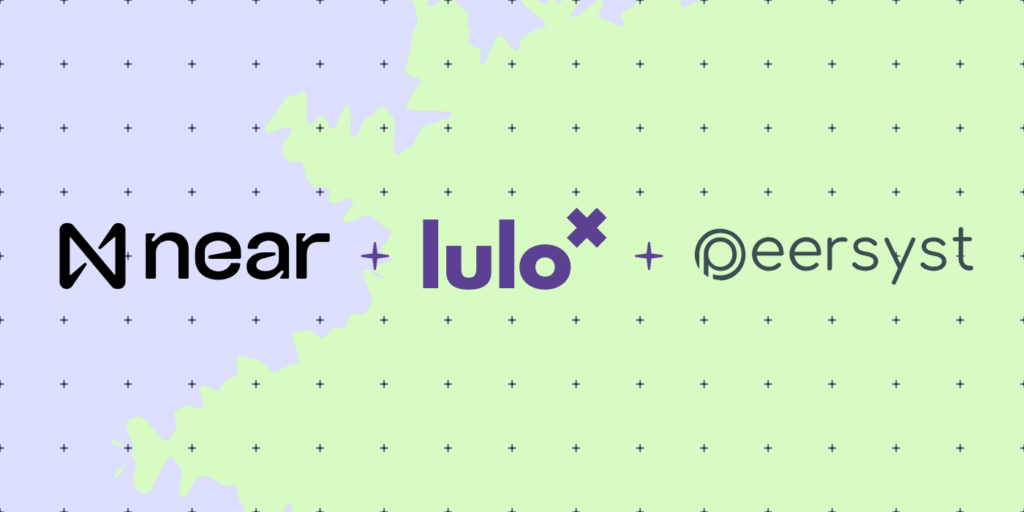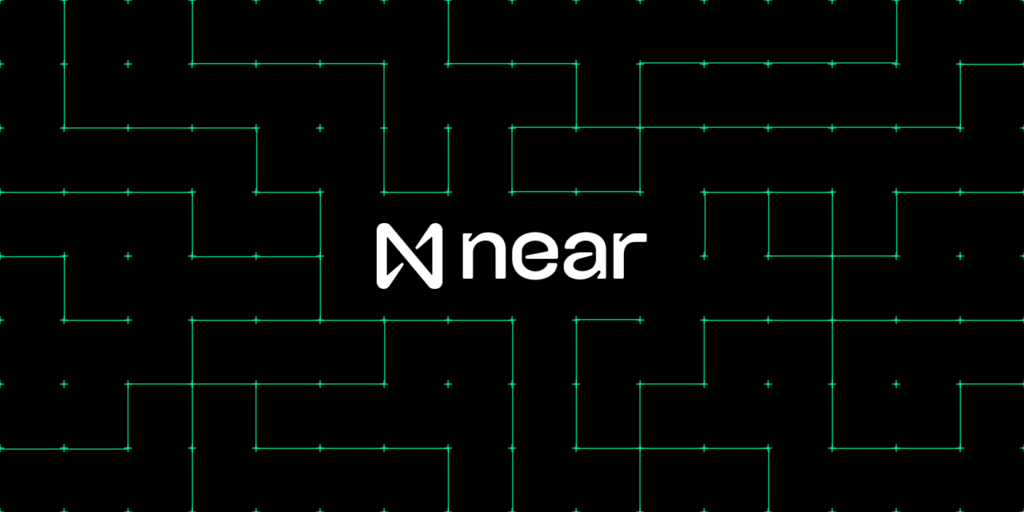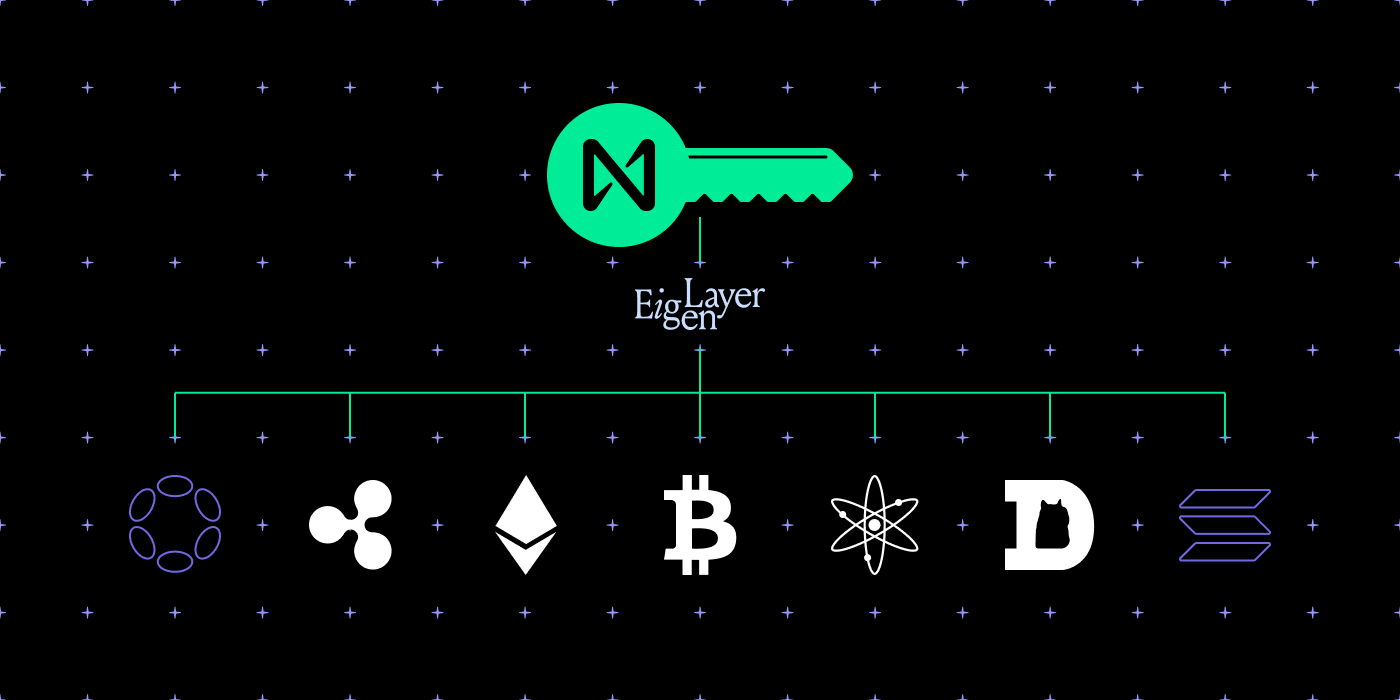Chain Signatures Launch to Enable Transactions on Any Blockchain from a NEAR Account
Today at BUIDL Asia in Seoul, Korea, NEAR Co-Founder and NEAR Foundation CEO Illia Polosukhin announced the launch of Chain Signatures on NEAR. Chain Signatures enable NEAR accounts, including smart contracts, to sign transactions for any blockchain. This is powered by a decentralized MPC network which uses NEAR staking and Eigenlayer ETH restakers for security. Chain Signatures currently supports Bitcoin, Ethereum, Cosmos chains, DogeCoin, and XRP Ledger and will soon support Solana, TON Network, Polkadot, and others.
How Chain Signatures Work
Chain signatures introduce threshold signatures for any blockchain, controlled by NEAR accounts & smart contracts. A NEAR account, which can also be a smart contract thanks to the NEAR account model, can request that the NEAR validators or MPC nodes sign an arbitrary payload, which could be a transaction for some other blockchain, and get a signed payload back to then send to the destination chain.
This is made possible by building an account-based decentralized Multi-Party Computation (MPC) network, allowing NEAR accounts to control multiple addresses on various chains and ensuring that the users are the only ones who can request signatures for transactions. Chain Signatures uses an account-based pattern, as opposed to a deposit-based or bridge-based pattern, as most other MPC networks currently in production do. The Chain Signatures MPC network functions as a decentralized signer for NEAR accounts and smart contracts, managing requests to addresses on different blockchains while placing zero burden on the user to manage these.

The first of its kind, Chain Signatures is a major advancement in DeFi adoption by enhancing cross chain interoperability and unlocking a new variety of use cases for mainstream users and Web3 builders. Chain signatures makes it easier to build DeFi products for particular chains and assets (while utilizing assets from other chains e.g. USDC/T, SOL, etc). For example, users can use XRP as collateral to borrow USDC, or trade DOGE for SOL. The launch of Chain Signatures delivers an elevated user experience that simplifies the transaction process while increasing accessibility to liquidity on non-smart contract chains such as Bitcoin, DogeCoin, XRP Ledger, and more. This also means that Chain Signatures let app developers serve all ecosystems at once from one interface rather than having to commit to a single chain or pool of liquidity.
The Chain Signatures MPC network is launching with Eigenlayer as a key partner and will be secured by Eigenlayer ETH restakers and NEAR stakers. The initial operator set is a trust-minimized network of ten node providers, which includes some top Eigen AVS infrastructure providers, using a Proof of Authority security model at launch. The future state is a permissionless network of node operators based on staking requirements and slashing conditions, planned to roll out in the coming months.
Multichain Gas Relayer
Launching alongside Chain Signatures is the Multichain Gas Relayer, which removes the need to have the native gas token of another chain in order to transact. This is a big hurdle for users today, often requiring purchasing multiple tokens on exchanges and sending them to different accounts just to complete a single cross-chain action. Now, with the Multichain Gas Relayer, users can just use NEAR or NEP-141 tokens to cover gas on any chain, not just NEAR or EVM chains.
This unlocks true multichain account abstraction. Whereas cross-chain bridges vary significantly depending on which assets are bridging to which chains, chain signatures makes transacting on smart contract and non-smart contract chains possible from a single account or interface, while simultaneously unlocking liquidity that wouldn’t have been accessible before.

For a longer technical deep dive on Chain Signatures and the Multichain Gas Relayer, see this post from February 2024 about NEAR account aggregation technologies.
New Web3 Design Patterns with Chain Signatures
Chain Signatures unlocks a range of powerful new use cases for application builders and DeFi developers while also enabling much simpler user interfaces across different contexts. Smart contracts on NEAR will be able to custody assets on any chain (since they can sign transactions on any chain via chain signatures), and maintain user balances similar to how single chain lending protocols or DEXs do now. For example, a user will be able to atomically swap their BTC in a Bitcoin account for another user’s ETH in an Ethereum account. This works because they can first deposit into accounts on these respective chains that are fully controlled by a NEAR smart contract, which will then settle the trade and allow the user’s to withdraw their “new” assets post-trade.
- DeFi on non-smart contract chains: NEAR smart contracts can sign transactions for non-smart contract chains like Bitcoin, Celestia, Bittensor, XRP Ledger, and others. This enables DEXs, lending protocols, and other DeFi apps to be built using the native assets of these chains, unlocking previously inaccessible liquidity.
- Bridgeless cross-chain DeFi: Since NEAR smart contracts can custody assets on any chain, users can build truly cross chain applications such as RFQs, orderbooks, AMMs, lending protocols, and more. It is also possible to build swaps and other apps without bridges and message passing layers, meaning that new chains and assets can be added at launch. Additionally, chain signatures can be used to build two-way bridges to non-smart contract chains, using NEAR as the intermediate chain.
- Multichain Account Abstraction: A single NEAR account can manage any number of accounts on any number of chains. This means users can get ERC 4337-like functionality (natively supported by NEAR) without deploying any new smart contracts (so they can use non-EVM and non-smart contract chains), or needing to update their accounts on each individual chain. Chain Signatures also enables users to pay for gas costs on various chains with USDC, including non-EVM chains.
- Instantly multichain apps at launch: Thanks to Chain Signatures and the Multichain Gas Relayer, app developers don’t need to commit to a single chain when they start building––now, they can make many chains accessible to their users immediately after launching and dramatically increase their addressable market of users.
Advancing the Chain Abstraction Vision
Chain Signatures advances the NEAR ecosystem’s vision of Chain Abstraction, or the idea that Web3 hurdles should be abstracted away from user interfaces for the sake of simplicity and accessibility. Many of these hurdles arise with multichain use cases as users need to deal with long lists of accounts on different chains, manually move assets between them, and manage all the related security. Now, with Chain Signatures, users can simply create and secure one account and then start transacting on any network in Web3. Chain Signatures also help dapp developers deliver better multichain experiences to their users and get access to all available liquidity across blockchains.
As Illia noted, “Since day one, the NEAR ecosystem has focused on simplifying access to Web3 for developers and mainstream users. Chain Signatures is the next step in that journey, making it significantly easier to transact on any blockchain while also defragmenting liquidity across the ecosystem. This will enable the next generation of truly decentralized apps to deliver much more powerful experiences and address the entire market of Web3 users.”
Live Use Cases In the Ecosystem
Several projects in the NEAR ecosystem are already building with Chain Signatures to introduce new design patterns and experiences to users. More information on the node provider ecosystem as well as news about additional projects building with Chain Signatures across Web3 is coming in the next few weeks.
- SWEAT Economy, a top ten most used decentralized app (dApp), utilizes Multichain Gas Relayer to let users send transactions from NEAR to BNB chain and pay for the gas in SWEAT tokens earned in-app.
- East Blue, a Bitcoin Layer 2, uses NEAR Chain Signatures to develop Bitcoin DeFi use cases that were not possible until now, providing a new way to extend Bitcoin with smart contract logic.
- LiNEAR is building a multichain, multi-asset restaking framework on top of Eigenlayer, enabling non-ETH assets including NEAR to be restaked and used for securing applications.
- Mintbase, an NFT infrastructure platform, enables NEAR-based Mintbase wallet holders to purchase Ethereum NFTs directly.
Start Building with Chain Signatures
Chain Signatures makes possible a range of new use cases for Web3 developers and users alike, opening up an exciting new design space and expanding the landscape of multichain apps and experiences utilizing Chain Abstraction.
Builders and developers interested in getting started with Chain Signatures can visit the documentation or explore code examples and begin building today. Projects looking for support implementing Chain Signatures can register their interest here.
Share this:
Join the community:
Follow NEAR:
More posts from our blog



